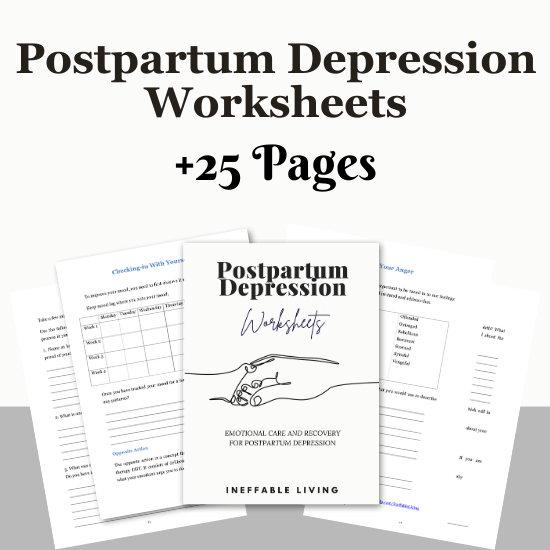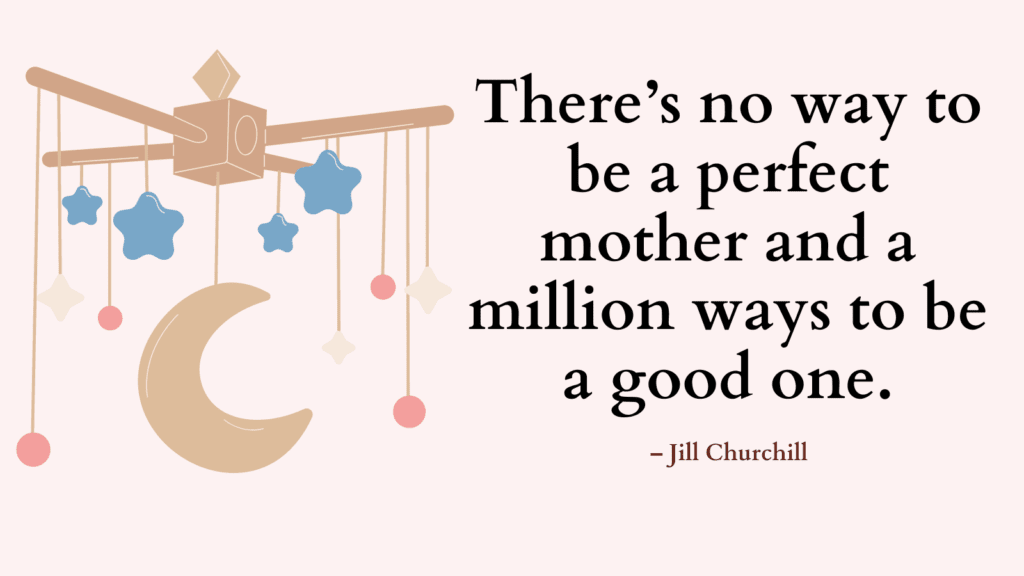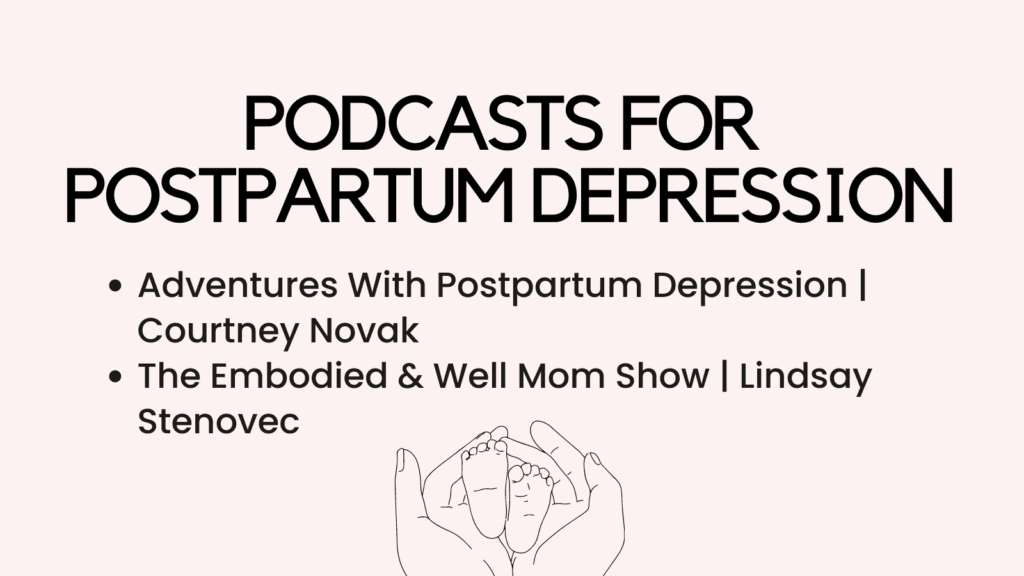Postpartum depression (PPD) can leave new mothers feeling overwhelmed, numb, tearful, exhausted, and deeply disconnected — even from the people and things they love most.
As a partner, you may feel helpless, unsure of what to say, or afraid of doing the wrong thing. But your presence, patience, and support can make a powerful difference.
You don’t have to fix everything — but you can walk beside her with empathy and steadiness.
Here are practical and compassionate ways to support a mom struggling with postpartum depression.
Understanding What Postpartum Depression (PPD) Really Is
PPD isn’t just “feeling sad” after having a baby. It’s a serious, medically recognized mood disorder that affects up to 1 in 7 mothers. Unlike the baby blues, which resolve in a few days, PPD can last for weeks or months and severely interfere with a mother’s ability to function. Causes may include:
- Rapid hormonal changes after birth
- Physical trauma from labor or surgery
- Sleep deprivation and emotional overload
- History of depression or anxiety
- Lack of support, connection, or rest
Understanding these roots helps partners respond with compassion, not confusion or frustration.
Common Triggers That Worsen PPD Symptoms
Certain situations or dynamics can intensify a mother’s depression, especially if left unaddressed:
- Feeling emotionally or physically abandoned by a partner
- Unrealistic expectations that she should be “happy” or “grateful”
- Criticism or problem-solving instead of listening
- Neglect of her needs in favor of baby’s needs only
- Isolation from friends, family, or adult conversation
Partners can reduce these triggers by becoming active allies in her recovery.
Related: Postpartum Anxiety Quiz (+ 5 Tips On Overcoming PPA)
How Partners Can Support Moms With Postpartum Depression?
1. Learn What Postpartum Depression Really Is
PPD is not “baby blues” or a sign of weakness. It’s a real, diagnosable mental health condition triggered by hormonal shifts, sleep deprivation, and emotional stress. Symptoms can include sadness, anxiety, hopelessness, irritability, guilt, or emotional numbness.
Why it matters: The more you understand, the more supportive (and less reactive) you can be.
2. Validate Her Feelings Without Trying to Fix Them
You may want to cheer her up or “look on the bright side,” but what she often needs most is to feel heard and believed.
Try saying:
- “It’s okay to feel this way.”
- “You’re not a bad mom — you’re just going through something incredibly hard.”
Avoid saying: - “But you have so much to be grateful for.”
- “Just try to get more rest.”
3. Help With Practical Daily Tasks
Depression can make basic tasks feel overwhelming. Step in gently without waiting to be asked.
You can:
- Handle meals, dishes, or laundry
- Take over baby care for stretches of time
- Schedule appointments or manage errands
These acts of service give her space to rest and signal that she’s not alone in the weight of it all.
4. Watch for Warning Signs of Deepening Depression
If she expresses hopelessness, talks about wanting to disappear, or seems emotionally detached from the baby or herself, don’t ignore it. These may be signs she needs immediate professional help.
What to do: Gently encourage her to talk to a doctor or therapist — and offer to help set up the appointment or go with her.
5. Encourage Professional Support Without Pressure
Let her know that getting help is a strength — not a failure. Therapy, medication, and support groups can all be lifelines, but the decision to seek help should come from a place of care, not shame.
Say: “You don’t have to go through this alone. Talking to someone could really help.”
6. Check In Without Making It About You
Ask open, non-judgmental questions like:
- “How are you really feeling today?”
- “What’s been the hardest part of this week?”
Avoid framing things around how you feel about her struggles. Stay focused on her needs and emotions.
7. Protect Her Space From Pressure or Criticism
Family, friends, or social media may unintentionally create pressure to “bounce back” or be cheerful. Shield her from unhelpful comparisons, unsolicited advice, or toxic expectations.
Support her in saying no — to visits, to conversations, to activities that don’t feel manageable right now.
8. Reassure Her That She’s Still a Good Mother
Depression can whisper cruel lies — that she’s failing, that her baby would be better off without her, that she’s broken. Counter those lies with consistent, grounded truth.
Say: “You’re doing an incredible job, even if it doesn’t feel like it.”
And mean it.
9. Take Care of Yourself Too
Supporting someone through PPD is emotionally demanding. Make sure you’re checking in with your own needs — getting rest, talking to someone you trust, or seeking counseling if you feel overwhelmed.
Why it matters: You can show up more fully for her when your own foundation is steady.
10. Stay Steady Through the Healing Process
Recovery from postpartum depression isn’t quick or linear. There will be good days and hard days. Your patience, calmness, and consistency can help her feel safe during a time when her internal world feels unstable.
Even if you don’t know what to say, being there — without judgment — is more powerful than you think.
Related: Postpartum Depression Resources (Information, Podcasts, Books)
When to Involve Professional Help
If symptoms persist beyond two weeks or worsen, it’s time to help her seek professional care. Look for:
- Talk therapy with a counselor who specializes in maternal mental health
- Medication if recommended by a doctor—SSRIs can be safe during breastfeeding
- Support groups (online or local) for shared healing
- Crisis support if she talks about self-harm or seems emotionally detached
Partners can help research options, schedule appointments, or even attend sessions together.

Conclusion
Supporting a partner through postpartum depression means showing up with presence, not perfection. It means helping her carry what feels too heavy, reminding her she’s not alone, and walking with her — even when the path is slow and winding. You can’t take away her pain, but you can be the anchor that helps her through it.



